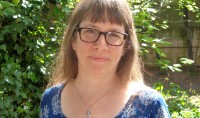Stephanie Paulsell's Christmas list
To give
René Steinke’s third novel, Friendswood, explores the effects of an environmental disaster on several families in a small Texas town and the ways religion shapes their fears, hopes, and responses. This is a novel about what we owe one another as neighbors and as human beings, and it reveals the sacredness of human attempts to repair what has been broken.
Fanny Howe, our most mystical poet, explores the ways childhood pulses through an entire life in Second Childhood. Howe’s language, fragmented yet precise, creates “a place to surmise / blessedness.”
Mary Gordon’s The Liar’s Wife includes four exquisite novellas that explore such subjects as Simone Weil’s last days in New York City and a teenager’s encounter with the novelist Thomas Mann in Gary, Indiana.
To receive
Virginia Woolf: Art, Life, and Vision is the catalog of an exhibition on Woolf that recently closed at London’s National Portrait Gallery. I dearly wish I had seen the exhibition, but I hope to catch a glimpse of Woolf and her artistry in Frances Spalding’s book, which integrates words and images.
All of my students are talking about Bad Feminist, a book of essays by Roxane Gay, a novelist and sharp cultural observer who teaches at Eastern Illinois University.
Finally, I want to read one of Stephen King’s latest books, Revival. One of the main characters is a minister who comes to town with a stunning wife and plans for the church. Who can resist?












